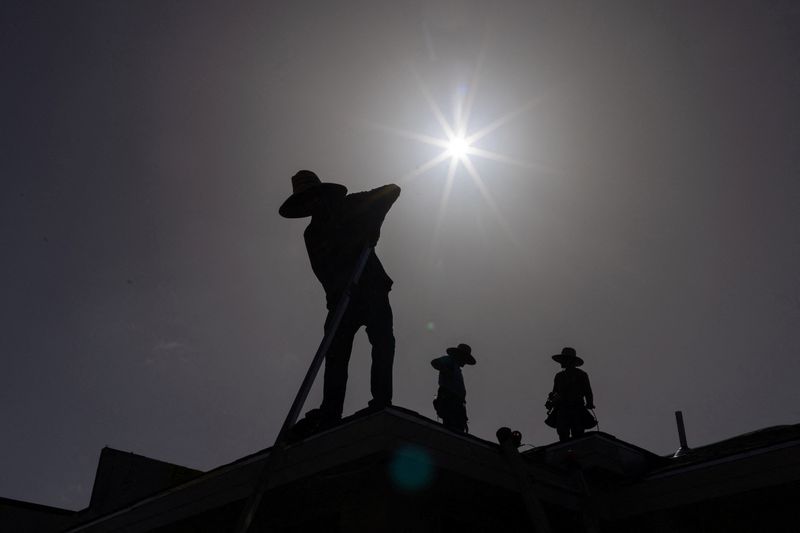
(Reuters) – Millions of Americans in southeast Texas were facing brutally hot conditions on Tuesday without the relief of air conditioning after Tropical Storm Beryl knocked out power to a large portion of the region.
Some 2.3 million homes and businesses were without electricity, according to Poweroutage.us, as temperatures were forecast to reach well past 100 degrees Fahrenheit (38 C) during the day, the National Weather Service said.
“Without power across much of Southeast Texas in the wake of Beryl, no air conditioning could make for dangerous conditions,” the service said in its forecast for the area, where it is expected to reach 105 F (40 C).
Tropical Storm Beryl barreled into Texas on Monday, killing three, flooding highways, damaging homes and downing power lines in its path.
The storm, which was expected to rapidly weaken as it moved inland, swept a destructive path through Jamaica, Grenada and St. Vincent and the Grenadines last week, killing 11 before reaching Texas.
Houston resident Raymond Miller, 46, has been without power since 6 a.m. Monday, leaving the food in his refrigerator inedible and his dog panting.
“It was hot, I had trouble sleeping and the humidity makes it very hard to breath in my apartment. Opening the windows last night didn’t do anything, it kind of made it worse,” said Miller, who works for a higher education institution in the area.
Miller said he plans on Tuesday to sit with his dog in the air conditioning vehicle, which has only a quarter tank of gas left.
“There is no gas available. Everyone is out of gas,” he said. “There is just a lot of unknowns right now … It is definitely difficult. Everything is coming to a head at this point.”
Those in the Texas were just a small percentage of the 123 million people across the U.S. under heat advisories on Tuesday. Most of the West – from Seattle down through California and into Arizona – were expected to see record high temperatures.

“The mid to upper-level high that has been anchoring the record heat in the West is not expected to change much over the next several days, as it remains locked in place,” the service said in its forecast.
Those living in a large swathe of the East were also expected to see stifling temperatures again on Tuesday. From the Gulf coast up through the Southeast, Mid-Atlantic and into southern New England, high daily temperatures were expected to reach well past 100 F (38 C).
This post is originally published on INVESTING.




